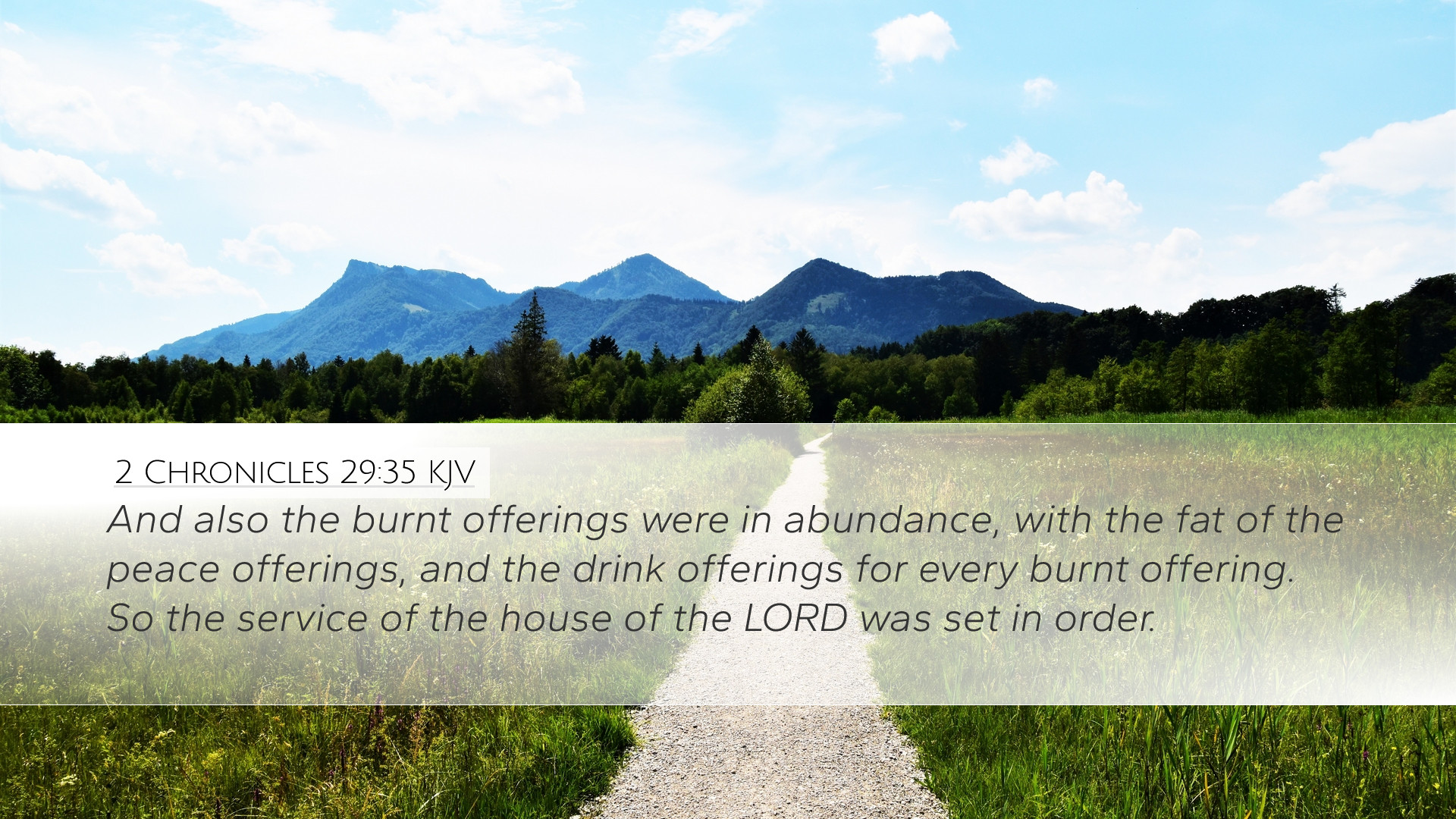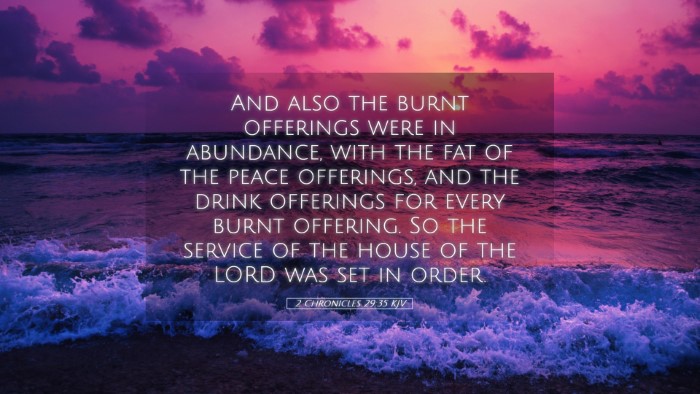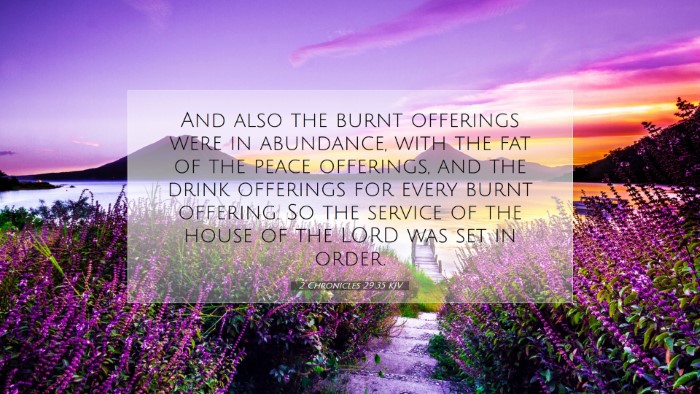Commentary on 2 Chronicles 29:35
Verse Context: In 2 Chronicles 29:35, the passage states, "And also the burnt offerings were in abundance, with the fat of the peace offerings, and the drink offerings for every burnt offering. So the service of the house of the Lord was set in order." This verse occurs at a pivotal moment during the reign of King Hezekiah, who is known for his religious reforms in Judah.
Overview of the Passage
This verse reflects the significant efforts made by Hezekiah to revive the worship and service of the temple after a long period of neglect. It signifies a return to proper worship practices and the reestablishment of the sacrificial system, which had fallen into disarray.
Thematic Elements
- Restoration and Renewal: The abundance of burnt offerings and peace offerings indicates not only a restoration of worship but also a renewal of the people's covenant relationship with God.
- Obedience to Divine Command: The actions taken under Hezekiah's leadership highlight the importance of adhering to the laws of worship as laid out in the Mosaic covenant.
- Unity in Worship: The communal involvement in worship signifies a unifying moment for the nation, drawing people back to God.
Commentary Insights
Matthew Henry’s Commentary
Matthew Henry emphasizes the divine favor that followed Hezekiah’s reforms. He notes that the multitude of sacrifices offered indicates a sincere commitment by the people to seek God’s presence. Henry elucidates that such offerings are not merely ritualistic but represent a heartfelt return to righteousness. He draws attention to God's grace in bringing about this revival, suggesting that the abundance of offerings is a manifestation of the people's gratitude for restoration.
Albert Barnes’ Notes on the Bible
Barnes highlights the significance of the peace offerings in this context, explaining that these are offerings expressing thankfulness and fellowship with God. He notes that the drink offerings often accompanied the burnt offerings, symbolizing a complete dedication to God. Barnes underscores that the orderly service of the Lord's house was not merely a restoration of ritual but a sign of spiritual revival across the nation. He also points to the necessity of proper organization in worship, which Hezekiah achieved through careful planning and execution.
Adam Clarke’s Commentary
Clarke provides a detailed analysis of the terms used in the verse, indicating that the "burnt offerings" denote total dedication, where the entire offering is consumed by fire, representing complete surrender to God. He draws attention to the communal aspect of the offerings made and how they reflect the collective unity of God’s people in worship. Clarke also emphasizes the restoration of worship as a historical turning point, indicating a new beginning for the Israelite community under Hezekiah’s leadership, characterized by zealous worship practices.
Theological Implications
The events depicted in 2 Chronicles 29:35 carry profound theological significance. Firstly, they mirror the necessity of repentance and return to God as a communal act rather than simply an individual endeavor. The organized worship signifies God’s desire for order and reverence in His house, suggesting that worship is not haphazard but needs to be conducted with dignity and respect.
Furthermore, the emphasis on sacrifices reflects an understanding of atonement and reconciliation that resonates throughout Scripture. In Christian theology, this points forward to the ultimate sacrifice of Jesus Christ, who fulfills the sacrificial system established in the Old Testament.
Application for Today
Pastors and church leaders today can draw several applications from this passage:
- Encouragement for Worship Leaders: The structured approach to worship can inspire leaders to plan services that facilitate genuine encounters with God.
- Revival and Restoration: The heart of both congregational and individual worship is always about returning to God, which can lead to revival.
- Gratitude in Worship: Like the offerings in this verse, worship should be an expression of thanksgiving and acknowledgment of God's goodness and provision.
- Unity in Community Worship: Engagement in collective worship enhances the sense of community, calling for every believer's involvement as part of the body of Christ.
Conclusion
2 Chronicles 29:35 serves as a poignant reminder of the importance of true worship and the communal aspect of faith. Hezekiah's reforms and the people's active participation in restoring the sacrificial system underline the necessity of returning to God with sincere hearts. As we reflect on this verse, may it challenge us to engage in meaningful worship that is orderly, abundant, and directed towards glorifying God.


